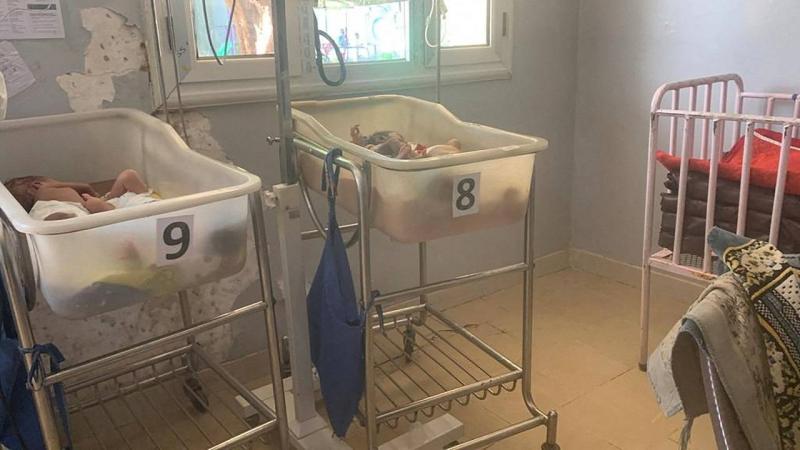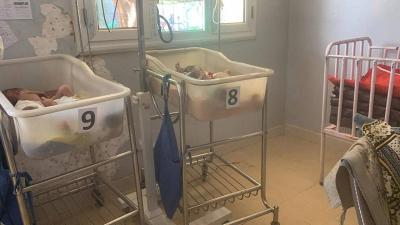In the days following the outbreak of conflict between the Sudanese army and the Rapid Support Forces in the capital, Khartoum, Dr. Abir Abdullah rushed between rooms in Sudan's largest orphanage, trying to care for hundreds of infants and young children as the fighting prevented most staff from attending. Abir recounted how the cries of children echoed throughout the expansive orphanage known as Dar Maikoma while heavy gunfire shook the surrounding areas. Death had found its way to the orphanage, with infants on the upper floors suffering from acute malnutrition and dehydration due to a lack of adequate staff to care for them. She added that her medical clinic on the ground floor hosted several weak newborns, and some had died after contracting high fevers.
The situation at Dar Maikoma is currently catastrophic. Reports indicate that 16 or more children have died within two days due to the prevailing conditions in the country, along with a lack of necessary supplies for care. "They needed feeding every three hours. Where can we secure that?" Abir said over the phone from her workplace, as the cries of children could be heard in the background. "We tried to secure nutrients, but most of the time we lost basic resources." Abir stated that the daily death toll had risen to two, three, four, or more; at least 50 children, including at least 20 infants, had died in the orphanage in the six weeks since the conflict erupted in mid-April. She mentioned that at least 13 of these children died on Friday, May 26.
A senior official at the orphanage confirmed these figures, and a surgeon who volunteered to work at the orphanage during the war stated that dozens of orphans had died. Both indicated that most deaths were among newborns and others under a year old. All three pointed to malnutrition, dehydration, and sepsis as the main causes of death. New deaths occurred in the past two days. Reuters reviewed seven death certificates dated Saturday and Sunday presented by Hiba Abdullah, an orphan who later became a caregiver at the orphanage, which indicated that they all died due to acute circulatory collapse, with fever or malnutrition or sepsis contributing to their deaths, except for one case.
Dr. Abir described the scenes of the victimized children in their beds as "horrifying and very painful." Reuters spoke to eight other individuals who visited the orphanage since the conflict began or were in contact with other visitors. All stated that the conditions had drastically deteriorated and the number of deaths had increased. Among them was Sadiq Al-Farini, the Director General of the Ministry of Social Development in Khartoum State, which oversees care centers, including budget, staffing, and supplies. He acknowledged the rising death toll at Dar Maikoma and attributed it mainly to staff shortages and repeated power outages due to the fighting. Without running ceiling fans and air conditioning, the rooms become stiflingly hot during May's heat in Khartoum, and power cuts make it difficult to sterilize equipment.
Discussions regarding evacuating the orphans from Khartoum were ongoing as recently as Friday, May 26. Mohammed Abdel Rahman, the director of emergency health at the Sudanese Ministry of Health, stated that a team is investigating what is happening at Dar Maikoma, with results to be released once the investigation is complete.




